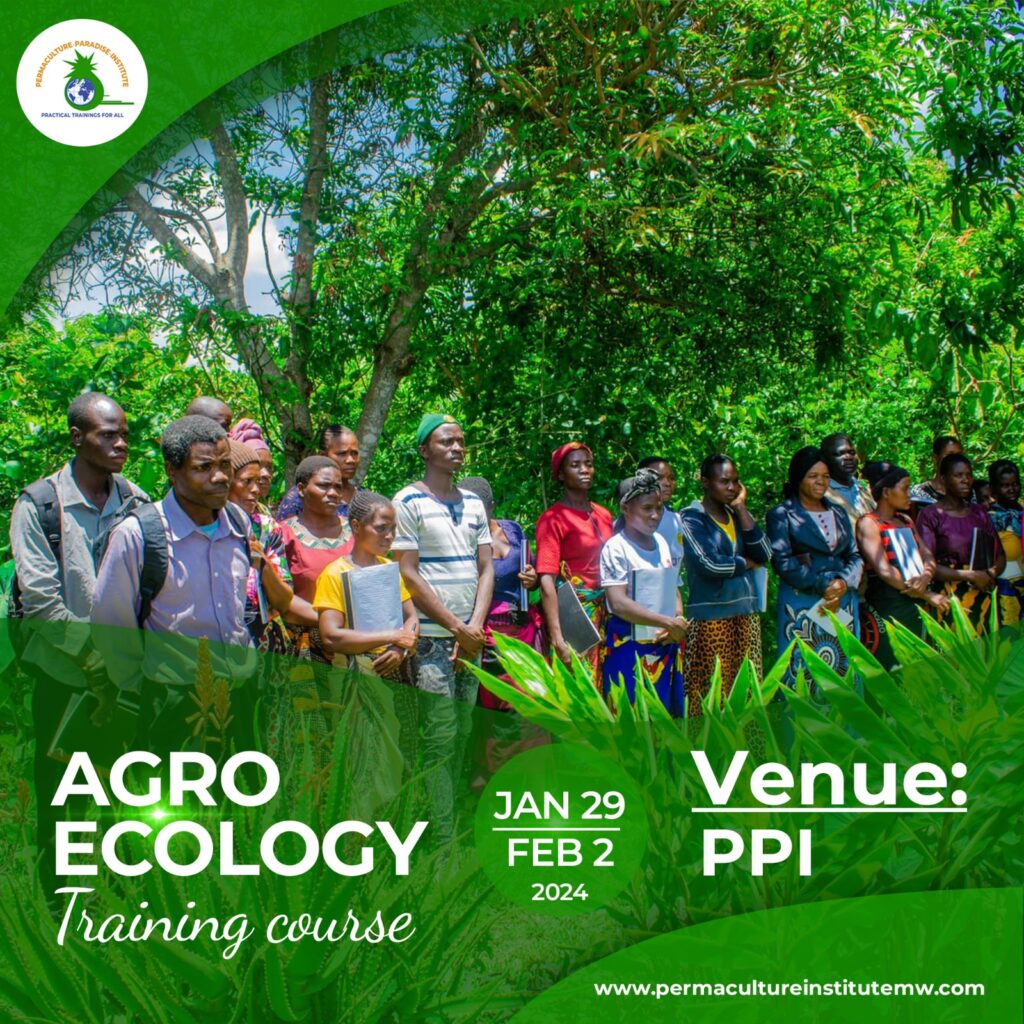In a dynamic pursuit of reshaping agricultural landscapes, a transformative one-day agro-ecology training session unfolded, marking the genesis of a groundbreaking project centered on climate-smart economic empowerment for smallholder farmers. The initiative, fostered by the generous sponsorship of Norwegian Church Aid Malawi and DanChurchAid, showcased a shift from theoretical concepts to the practical application of agro-ecological principles, igniting a wave of innovation and sustainable practices.
This immersive training, a crescendo from a two-day theoretical foundation, immersed project staff into the tangible realms of agro-ecological practices. From understanding the very essence of agro-ecology at our institute, to experiencing the entire lifecycle through our farmers’ marketplace, cafe and restaurant, the journey unfolded, illustrating a tapestry of secular and economic diversity.
The emphasis laid on practical strategies for agro-ecological transition resonated deeply. Key facets, ranging from input efficiency and substitution to system redesign, illuminated pathways toward creating interconnected systems that bridge the gap between producers and consumers. Our thriving farmers’ markets stood as a testament to this vision, demonstrating the potential for alternative food systems that redefine global agriculture.

At the heart of this endeavor lie the 13 fundamental principles of agro-ecology, meticulously articulated for their relevance in landscape-specific contexts. Soil health, animal welfare, biodiversity, synergy, recycling, economic and crop diversity and input reduction formed the bedrock. Expanding beyond, our focus extended to inclusive food systems, embodying participation, social value, co-creation of knowledge, land governance, connectivity and fairness.
This holistic model serves as a beacon, showcasing a real-time application of contextualized agro-ecology. Its impact echoes a narrative of transformation propelling us toward a new era of agriculture founded on total participation, inclusiveness, locality, fairness and justice.
As day one unraveled its treasure trove of insights, the journey towards an agro-ecologically harmonized world began. This training sets the stage for an evolution in farming practices a testament to the potential inherent in marrying ecological wisdom with agricultural innovation. The seeds of change have been sown; the harvest of sustainable agriculture beckons on the horizon.




